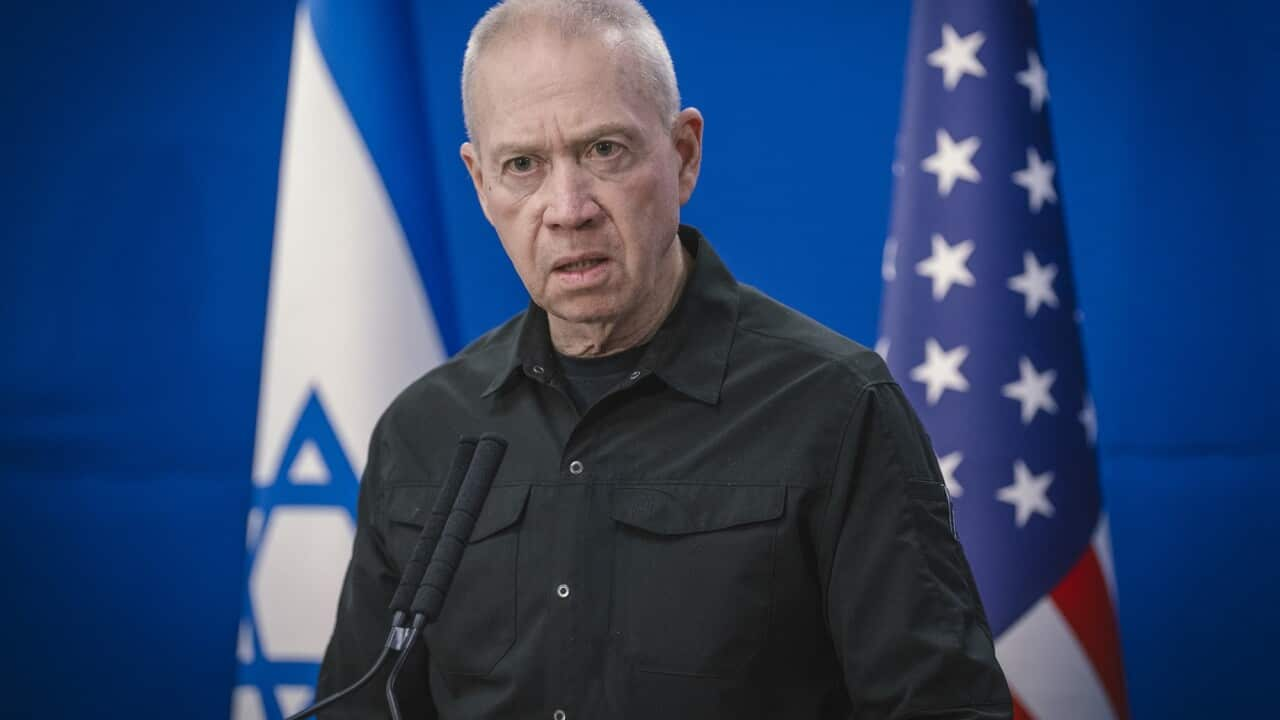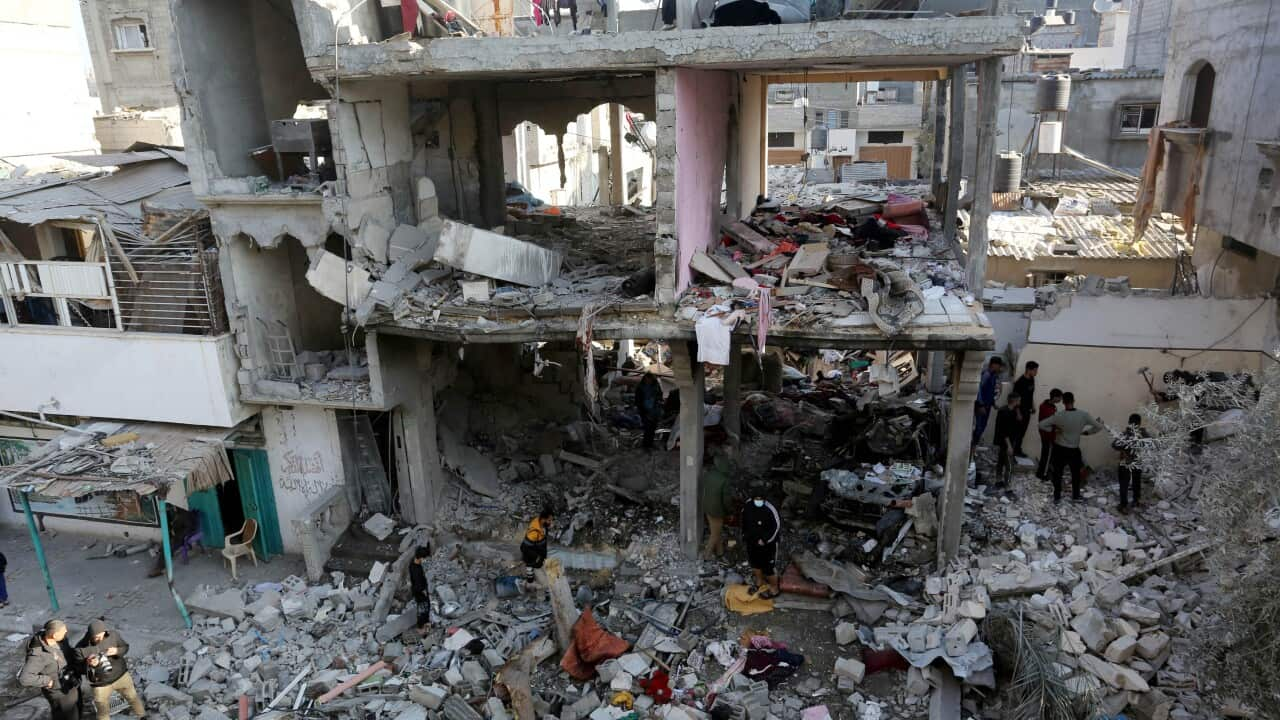Key Points
- Hamas' 7 October rampage in southern Israel killed 1,200 people.
- Israel's offensive has so far killed 22,722 Palestinians.
- Palestinian health ministry said that 70 percent of Gaza's dead are women and people under 18.
Top US and European diplomats sought ways on Sunday to keep the Gaza war from spreading further in the Middle East, but three months after the start of the conflict, more bloodshed underlined the difficulties they face.
Israeli aircraft fired on Palestinian militants who had attacked troops in the Occupied West Bank on Sunday, the military said, and Palestinian health officials said six Palestinians were killed in the strike.
An Israeli border police officer was killed and others wounded when their vehicle was hit by an explosive device during operations in the West Bank city of Jenin, the military and police said.
The Occupied West Bank had already seen its highest levels of unrest in decades during the 18 months before the 7 October attack on Israel by the Hamas group that rules Gaza.
Confrontations in the West Bank have risen sharply since Israeli forces launched their retaliatory offensive on Gaza, laying waste to the Palestinian enclave as they seek to wipe out Hamas.
In the West Bank, hundreds of Palestinians have been killed in clashes with Israeli soldiers over the past weeks and security forces have made thousands of arrests.
US Secretary of State Antony Blinken and the European Union's top diplomat, Josep Borrell, were on separate trips to the region to try to quell spillover from the war into Lebanon, the West Bank and Red Sea shipping lanes.
Blinken was in Jordan on Sunday, after stops in Turkey and Greece, while Borrell was on a trip to Lebanon. Both said their priority was quelling spillover from the Gaza war.
"We have an intense focus on preventing this conflict from spreading," said Blinken, who will also travel to Israel, the West Bank, Qatar, the United Arab Emirates, Saudi Arabia and Egypt during his fourth trip to the region.
Israeli military spokesperson Rear Admiral Daniel Hagari gave a roundup of the offensive on Saturday, saying Israeli forces had completely dismantled Hamas' "military framework" in northern Gaza and had killed around 8,000 militants in that area.
"We are now focused on dismantling Hamas in the centre of and south of the (Gaza) strip," he said in an online briefing.
"Fighting will continue during 2024. We are operating according to a plan to achieve the war's goals, to dismantle Hamas in the north and south," Hagari said.
The 7 October Hamas rampage in southern Israel killed 1,200 people and 240 were taken hostage, according to Israeli officials. More than 100 hostages are still believed to be held by Hamas.
The attack was a significant escalation in the long-standing conflict between Israel and Hamas.
Hamas is a Palestinian political and military group, which has governed the Gaza Strip since the most recent elections in 2006.
Hamas’s stated aim is to establish a Palestinian state and stop the Israeli occupation of Gaza and the West Bank, illegal under international law.
Hamas in its entirety is listed as a terrorist organisation by the European Union and seven other countries, including Australia. But the UN Assembly rejected classifying Hamas as a terrorist group in a 2018 vote.
In 2021 the International Criminal Court opened an investigation into alleged Israeli war crimes in the Palestinian territories dating back to 2014, including the recent attacks of both Israel and Hamas.
Israel's offensive has so far killed 22,722 Palestinians, according to Palestinian health officials on Saturday.
Israel has signalled a shift in recent days to scale down forces while facing international pressure over the mounting death toll and humanitarian crisis in Gaza.
Palestinian health ministry casualty figures do not differentiate between fighters and civilians, but the ministry has said that 70 per cent of Gaza's dead are women and people under 18.
The fighting has displaced most of the enclave's 2.3 million population, with many homes and civilian infrastructure left in ruins amid acute shortages of food, water and medicine.












